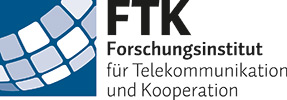RecomRatio
The aim of the DFG project RecomRatio was to develop a methodology making external recommendations for action more transparent and efficient. The problem was that in many situations information and options must be compared, selected and processed, where the executing persons are under pressure to act and usually do not have sufficient resources for decision-making. The methodology developed in the project consisted of placing a recommended option in the overall picture and context by systematically comparing it with other available options. This was to include a description of the advantages and disadvantages of the recommendation compared to other available options.
As a proof of concept / proof of effectiveness, the process of effectively matching search queries in a semantic information retrieval application was transferred to the medical domain. The intention was to support physicians in better classifying the recommendations of other physicians or a laboratory to support decision-making, for example, about an optimal therapy for a patient. The specific requirements of the project result in a recommendation software that summarizes the knowledge extracted from unstructured data of medical publications in order to systematically recommend all findings on the efficacy and safety of a certain medical diagnosis or therapy in the form of concrete, argumentatively robust arguments, i.e., supported by published knowledge, for decision support in diagnosis and treatment situations.
In summary: The support of medical argumentation through textual evidence was the goal of the DFG-funded project RecomRatio. To this end, methods from the computer science subfields of information retrieval, natural language processing and named entity recognition, machine learning and argumentation mining were used to support evidence-based medical reasoning.
